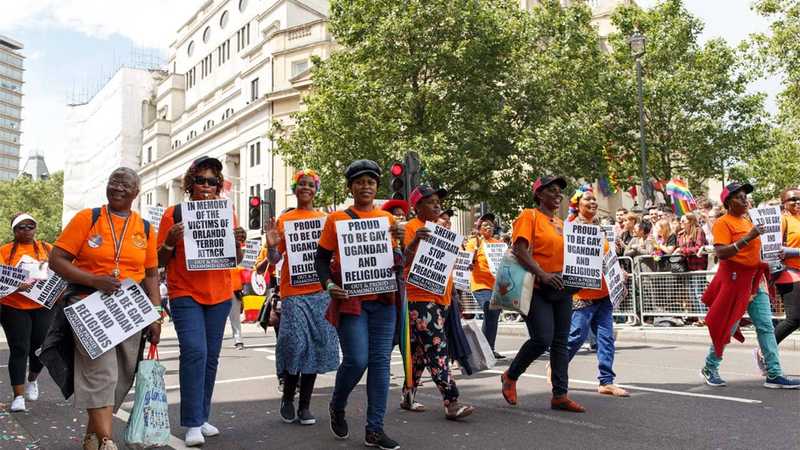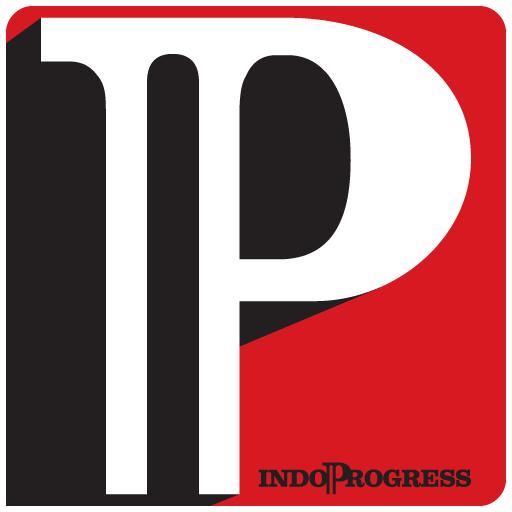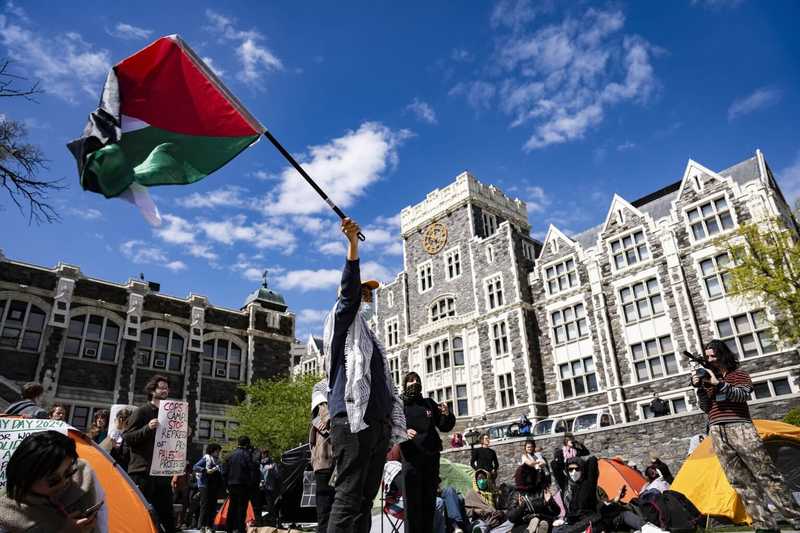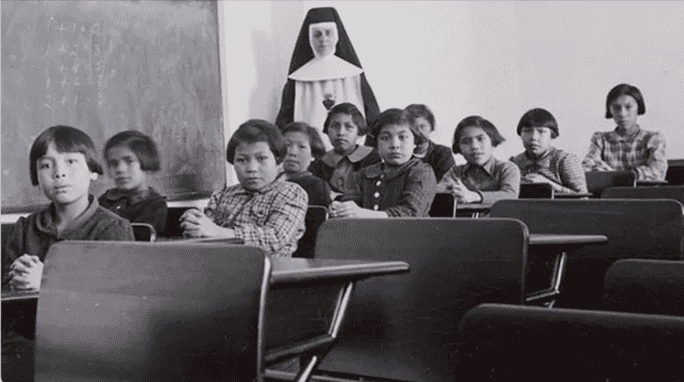
In May, Uganda’s parliament approved the country’s harsh anti-gay bill, threatening LGBTIQ people with the death sentence or life imprisonment in some cases.
Lawmakers agreed to a handful of revisions that were requested by president Yoweri Museveni two weeks ago, but the bill retains its strictest provisions.
Rights campaigners in the country say the law is the culmination of more than a decade of collaboration between Ugandan elite interest groups and US ultra-conservatives, and call for any international responses to its passing to target not just Uganda but these US actors too.
“What I would expect [the West] to be doing right now is holding themselves accountable,” feminist writer Twasiima Bigirwa told openDemocracy.
At least two American citizens, as well as US-registered non-profits, have been linked to the political organising that set the stage for the bill. Western powers have been vocal in condemning Uganda for the law but have made no public statements about them. Instead, openDemocracy has discovered, the German government maintains financial ties to one of the Americans.
Sharon Slater, the head of a US-registered non-profit best known as Family Watch International, is an active organiser in a collective of more than 150 ultra-conservative campaigners in Uganda, who convene and strategise in a private WhatsApp group whose messages openDemocracy has seen.
The deputy speaker of Uganda’s parliament, Thomas Tayebwa, has called the group “my ideological home”. It was in the WhatsApp discussion, obtained exclusively by openDemocracy, that he first announced on 25 January 2023: “I think the ground is now ripe to re-table the anti-homosexuality bill.” The bill was introduced less than two months later and fast-tracked through parliament.
Amid international backlash about the harshness of the bill, once it passed, Slater met with Museveni on 2 April urging him to add an exemption to the law for LGBTIQ people who were being subjected to so-called conversion therapy – a set of discredited practices that attempt to change a person’s sexual orientation. Museveni’s request for revision mentioned that he considered the idea but dropped it because it would cost the government money.
A 2020 investigation by openDemocracy found that Family Watch International had, for a decade, been coaching high-ranking African politicians, and religious and civic leaders to oppose comprehensive sexuality education across the continent. In the WhatsApp group, Slater appears to have messaged Ugandan legislators urging them to lobby against UN resolutions that include LGBTIQ-inclusive language.
Family Watch International told openDemocracy that it “has never been involved in any way in promoting the 2014 or the 2023 anti-homosexual bills in Uganda. In fact, we have always opposed them.” Regarding Slater's participation in the WhatsApp group, it added: “To our knowledge, over a three-year period Mrs. Slater posted only twice to the group.”
The WhatsApp discussion reviewed by openDemocracy shows 86 messages in 19 months from Slater’s phone number to the group – including organising Zoom meetings and suggesting wording for external messaging.
Regarding Slater's meeting with Museveni, Family Watch International says that she “pleaded with Uganda’s president that if he planned to sign the bill, to ensure that it be softened to include a “safe-haven” clause whereby people who have unwanted same-sex attraction can come forward and get voluntary counseling instead of punishment”. It added that the organisation does not “support any kind of therapy which seeks to force people to change their sexual orientation or promises that they can change someone’s sexual orientation”.
Another US citizen, Tim Kreutter, who represents the US-registered Fellowship Foundation in Uganda, is an active player in an influential group called ‘National Prayer Breakfast’ which has been described in the US and abroad as another incubator for ultra-conservative political agendas.
“The initial point of entry was the [Ugandan] National Prayer Breakfast, a collection of religious and radical people here who introduced that ideology of hate. They sit over breakfast and pray and make radical hate speeches,” said Fox Odoi, the only MP to vote against the bill on Tuesday, in an earlier interview with openDemocracy. “They also introduced some money. They hold fellowships in expensive hotels, attended by MPs. They also sponsor trips for MPs – to Jerusalem, for example – and basically indoctrinate them.”
Kreutter told openDemocracy he had played no role in the bill itself, but conceded that “for a number of years I have been involved in the ‘National Prayer Breakfast’ circles – in regards [sic] to promoting reconciliation and unity across political, ethnic and religious divisions”. He also said: “I have served as a link to help Ugandans attend the US National Prayer Breakfast.”
Ugandan MP David Bahati has cited US prayer breakfast figures as the inspiration for a similarly harsh anti-gay bill he drafted in 2009. Parliament passed the bill in late 2013; Uganda’s constitutional court annulled it in early 2014, but it formed the basis for the amended bill that was tabled this year.
Frank Mugisha, a Ugandan rights campaigner and head of local LGBTIQ group Sexual Minorities Uganda, said the US government had long been unwilling to act or speak out about its own citizens’ involvement in homophobic political projects abroad.
“The US government has done nothing to stop its citizens from exporting hate,” he said. “We exposed Scott Lively and Lou Engle, these Americans who spoke and met publicly with Ugandan politicians and supported the anti-gay bill in 2009, but the US government [turned] a deaf ear.”
openDemocracy contacted the US state department, which is responsible for foreign policy, for comment about the American citizens and non-profits involved in ultra-conservative campaigning in Uganda.
A spokesperson responded with a statement that said nothing about the American individuals and non-profits, but repeated the official US message to the Ugandan state. “The bill will deter foreign investors, foreign companies, and international tourists,” it said, naming the already controversial East Africa Crude Oil Pipeline as one of the projects whose foreign investment Uganda should safeguard.
The US President’s Emergency Plan for AIDS Relief (PEPFAR), which gives Uganda about $400m in aid each year, has indefinitely deferred planning for activities in Uganda beyond 2023.
Germany is muted too
openDemocracy has also established an active financial link between Kreutter and the German government – he heads Cornerstone Development Africa, one of the five non-governmental organisations (NGOs) implementing the €2m Great Lakes Youth Network for Dialogue and Peace project funded by the European Union (EU) and the German Ministry for Economic Cooperation and Development (BMZ).
The work is being led by a German political foundation called the Konrad-Adenauer Stiftung (KAS). Asked about Kreutter’s connections to anti-gay politics in Uganda, a KAS spokesperson said: “All partners have been chosen because of their experience in working together with the youth and have undergone an assessment of their previous work.”
Kreutter and Cornerstone Development Africa’s experience with youth largely draws from work funded by the ultra-conservative Fellowship Foundation. It sent more than $20m to Uganda between 2007 and 2018 for “leadership academies” run by Kreutter in Uganda and Rwanda, and continues to send large sums there.
The BMZ told openDemocracy that “religion and sexual orientation are not being addressed by the project” and added there was “no evidence” that the people implementing the project had not adhered to “equal participation by all people in social, political and economic life – regardless of gender, gender identity, sexual orientation, skin colour, disability or other traits”.
The EU did not respond to our questions.
Back in Uganda, KAS revealed ties to another influential anti-LGBTIQ figure: Tayebwa, the deputy speaker who has been vocal in pushing for the anti-gay law to be passed. A team from the KAS headquarters visited Tayebwa’s office yesterday, and Tayebwa presided over the opening of the foundation’s new Kampala office.
Selective condemnation and silence about actors in Uganda’s anti-gay politics, says Bigirwa, stereotypes it as a Ugandan problem. “But this is not only a Ugandan problem,” she added. “The kind of hate that we’re seeing at this moment is really inorganic. It’s been brought and stirred by outsiders, and those outsiders need to be held accountable.”
The bill will now be sent back to Museveni to sign into effect or veto. If he sends it back to parliament again, a two-thirds majority of legislators could legally override his decision and pass the law without his assent.
Kreutter told openDemocracy that he speaks to young people on topics like good leadership, integrity and reconciliation, but added: “I do not speak on the topic of homosexuality.”
Family Watch told US website Fronteras that it did not support the final version of the Ugandan bill. Slater did not respond to openDemocracy’s requests for comment before our deadline, but claimed in an email that aspects of the story we had put to her were “either false or misleading or both”.
Based in Kampala, Uganda, Khatondi is openDemocracy’s East Africa reporter, working on our Tracking the Backlash feminist investigative journalism project.
Photo: Katy Blackwood / Wikimedia Commons







